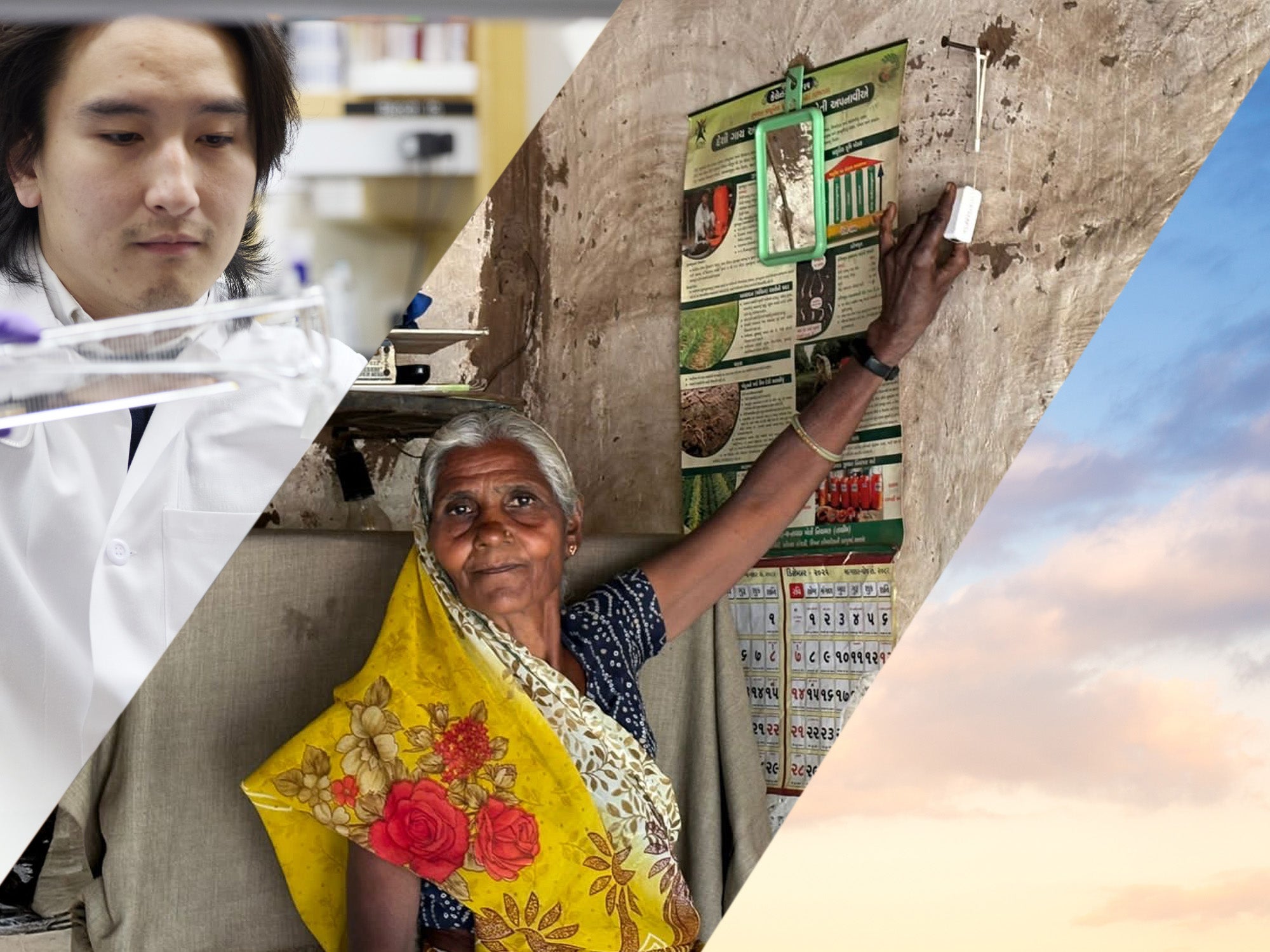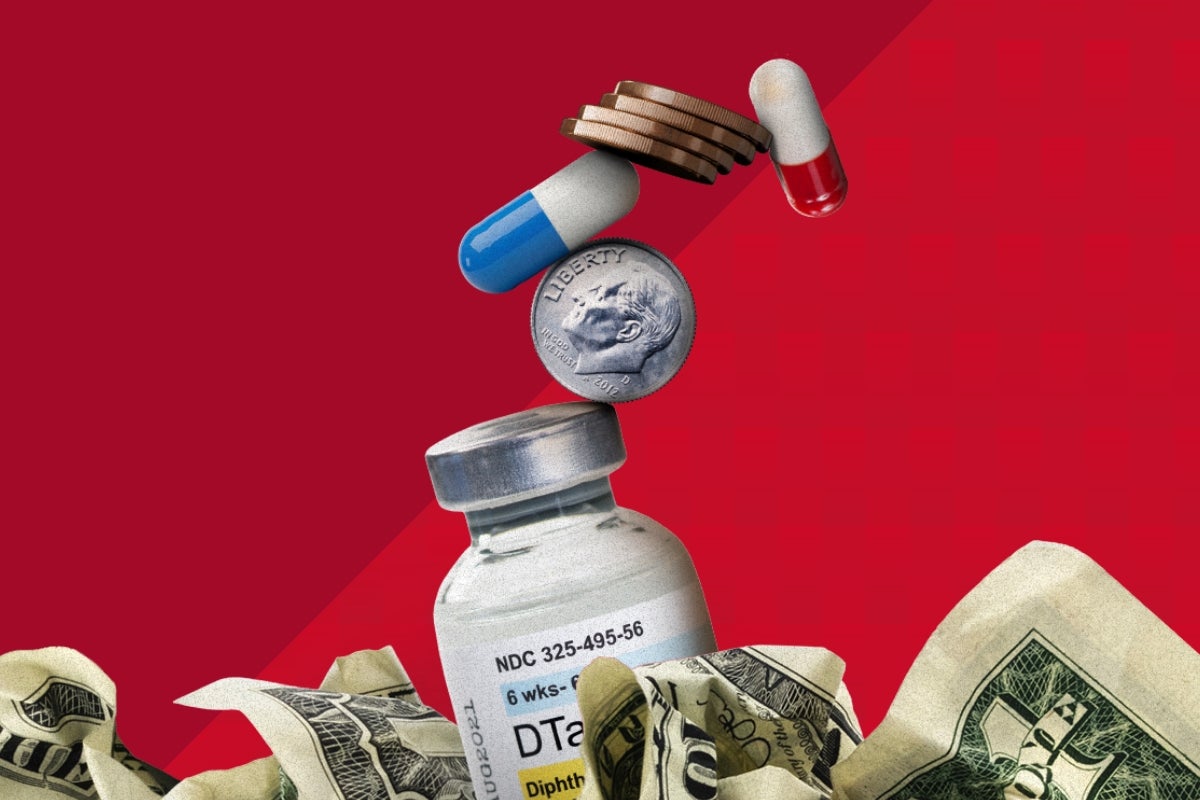HPRC Quarterly Highlights: Q2 2024
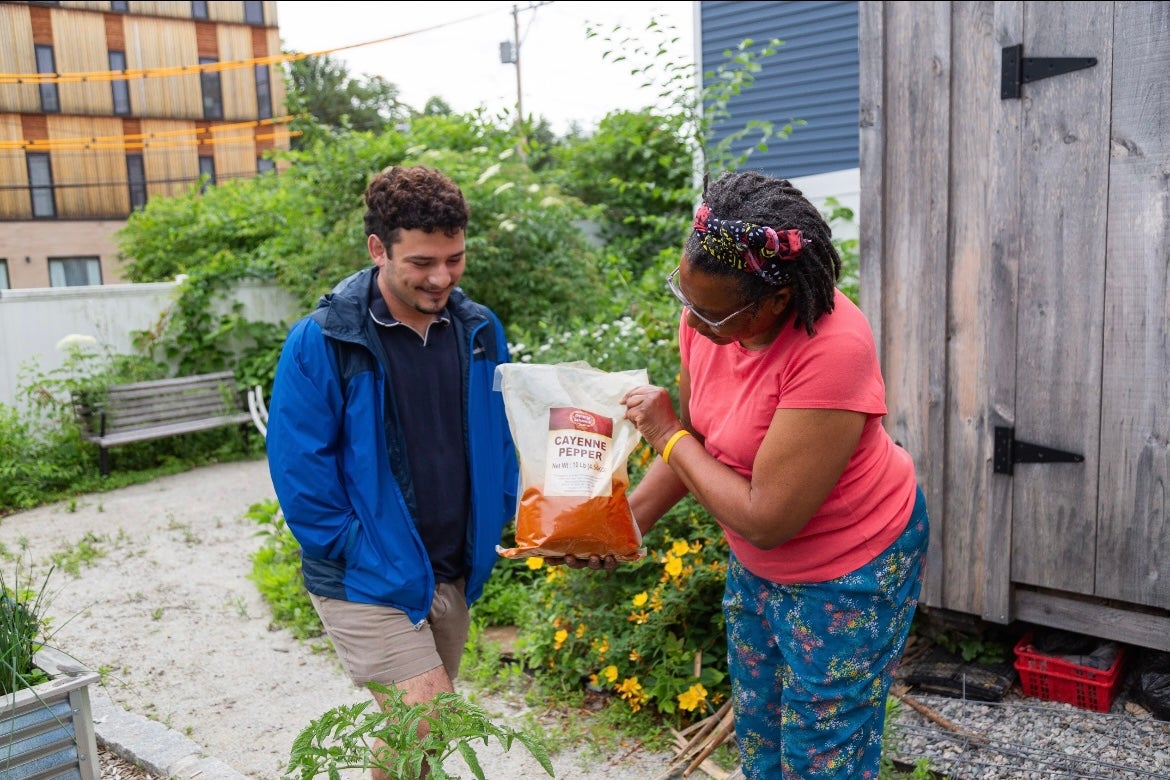
This quarter, we presented about our core research project during a webinar with key partners, held coffee chats on the evidence around sugary drink excise taxes and engaging community partners in health improvement planning, published a variety of new resources, and engaged with a non-profit promoting equitable green spaces in Boston. Below we highlight our accomplishments from Q2, categorized within the four aims in which our Center is focused.
Collaborate with Partners to Identify Evidence-Based Interventions
Webinar: Building Community Partnerships through MA-CHOICES: Using Cost Effectiveness to Promote Healthy Eating & Physical Activity
In partnership with the Centers for Disease Control and Prevention’s Prevention Research Centers (PRCs), the National Association of County and City Health Officials hosted a series of three webinars shining a spotlight on various PRCs developing, implementing, and evaluating evidence-based strategies to prevent and manage chronic diseases. The HPRC presented during the second webinar in June.
The HRPC collaborated with the Boston Public Health Commission (BPHC) to identify a playbook of strategies to improve nutrition and physical activity environments, reduce excess weight gain, and study how cost-effectiveness metrics can be used to inform decision-making, as part of our core research project.
During this webinar, speakers Angie Cradock and Molly Garrone of the HPRC as well as Mary Bovenzi and Sonia Carter of the BPHC highlighted the resources and tools developed that can be used to prioritize and plan prevention strategies with local partners. They also discussed strategies to tailor research projects to build community partnerships for future prevention activities.
Promote Healthy Weight, Healthy Eating, & Active Living
Coffee Chats Explore Effective Nutrition Policies
This event was part of our monthly CHOICES Community of Practice coffee chat series.
The CHOICES Community of Practice has hosted five coffee chats since January, covering topics such as promoting healthy eating through nutrition policies (e.g., sugary drink excise taxes and added-sugar warning labels on restaurant menus), increasing community engagement in health improvement planning, and enhancing health communications. If you missed any or wish to revisit a session, access the recordings and shared resources through the links below.
Here’s our 2024 coffee chat line-up so far:
- January: Exploring the Health Benefits of Sugary Drink Excise Taxes
- February: Engaging Community Partners in Health Improvement Planning
- March: State & Local Policies for Incorporating Added-Sugar Warning Labels on Restaurant Menus
- April: Advancing Equitable Access to Improved Nutrition: Evidence and Policy
- May: Enhancing Health Communications to Empower Your Outreach
➡️📅 Mark your calendars: Join us for our monthly coffee chat series, typically scheduled on the fourth Thursday of each month from 1:00 – 1:50pm ET.
☕️💡 Got ideas brewing?! Please share your ideas and suggestions for future CHOICES Community of Practice coffee chat topics. Your input helps shape our upcoming discussions!
📧👥 Invite a friend! Consider inviting a colleague or partner to join our coffee chats. Share our library of past coffee chats so they can get a taste!
Our monthly coffee chats are tailored for public health professionals dedicated to promoting healthy weight, healthy eating, and active living. These sessions serve as valuable opportunities to learn and connect with others.
Offer Resources & Training Opportunities
New Resources
We continue to share a variety of new resources and peer-reviewed publications that align with our Center’s Priority Areas (healthy eating, active living, sugary drinks, drinking water access and intake, and unhealthy food and beverage marketing). This quarter, we published and launched the following:
- Cost-effectiveness of Improved WIC Food Package for Preventing Childhood Obesity (Kenney EL, Lee MM, Barrett JL, Ward ZJ, Long MW, Cradock AL, Williams DR, Gortmaker SL, Pediatrics, January 2024) | Peer-Reviewed Publications
- Exploring the Cost-Effectiveness of Strategies to Improve Child Health in Massachusetts | Research Briefs & Reports
- Strategy Profile: Improved WIC Food Package for 1-4-Year-Olds (2009) | Tools & Guides
- Strategy Report: Improved WIC Food Package for 1-4-Year-Olds (2009) | Research Briefs & Reports
- Strategy Report: Sugary Drink Excise Tax: 2 Cents Per Ounce | Research Briefs & Reports
Build Capacity for Conducting Community-Engaged Research
Harvard Chan MS Candidate Uses Storytelling to Analyze Impact of Boston-Based Non-Profit that Promotes Equitable Access to Green Spaces
COGdesign is a Boston-based non-profit organization that expands equitable access to green and open spaces through community-based participatory landscape design, by providing pro bono landscape design services to under-resourced community groups in the greater Boston area. By working with community clients, volunteer designers, and project liaisons, COGdesign centers the co-creation of spaces that meet neighborhood needs.
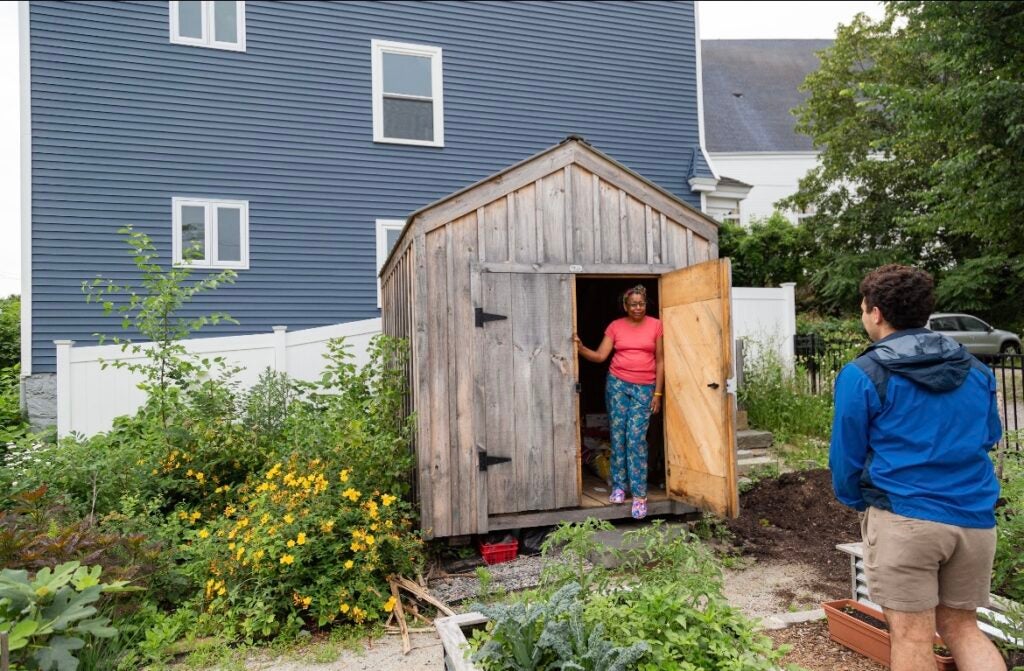
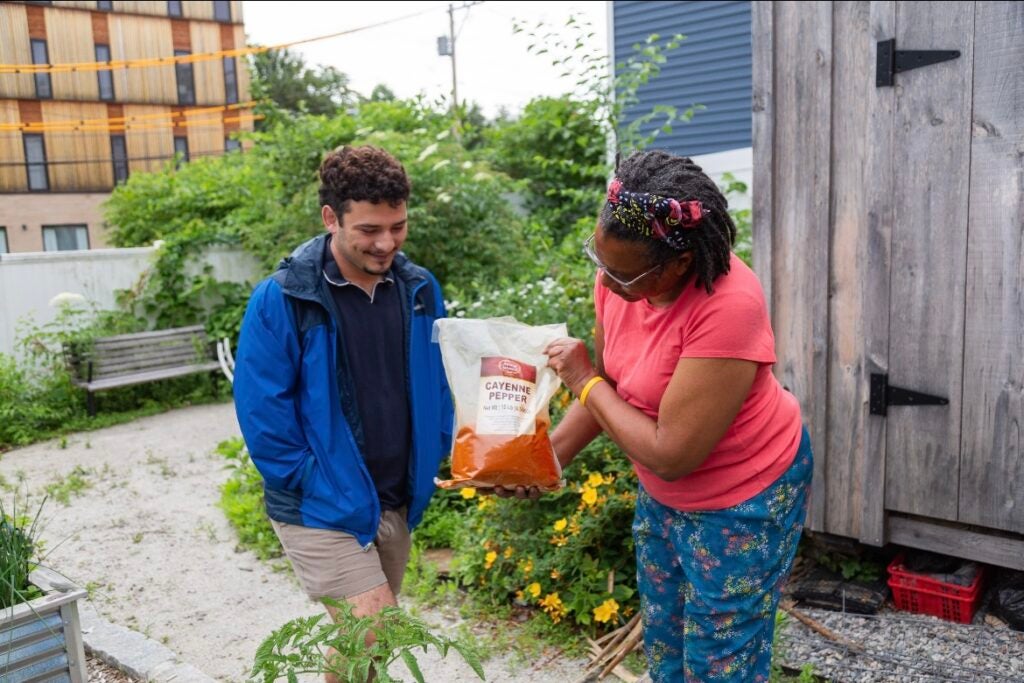
Along with Staci Jasin, COGdesign’s Executive Director, HPRC faculty member Dr. Rebekka Lee is supervising a student intern, Ben Weitz, MS candidate in Environmental Health with a concentration in Environmental Justice, to apply qualitative methods to a practical, real-world evaluation through working with COGdesign. This work is supported by the Greater Boston Community Internship Fund and the HPRC community consultation service.
Below, Ben shares a bit about his experience. The photos in this story come from his work at the Gore Street Community Garden in Mission Hill, Boston. Mary Ann Nelson, Executive Director of the Mission Hill Health Movement and longtime resident, is also pictured in these photos, and was a member of the 2017 Leaders in Health Community Training Program cohort.
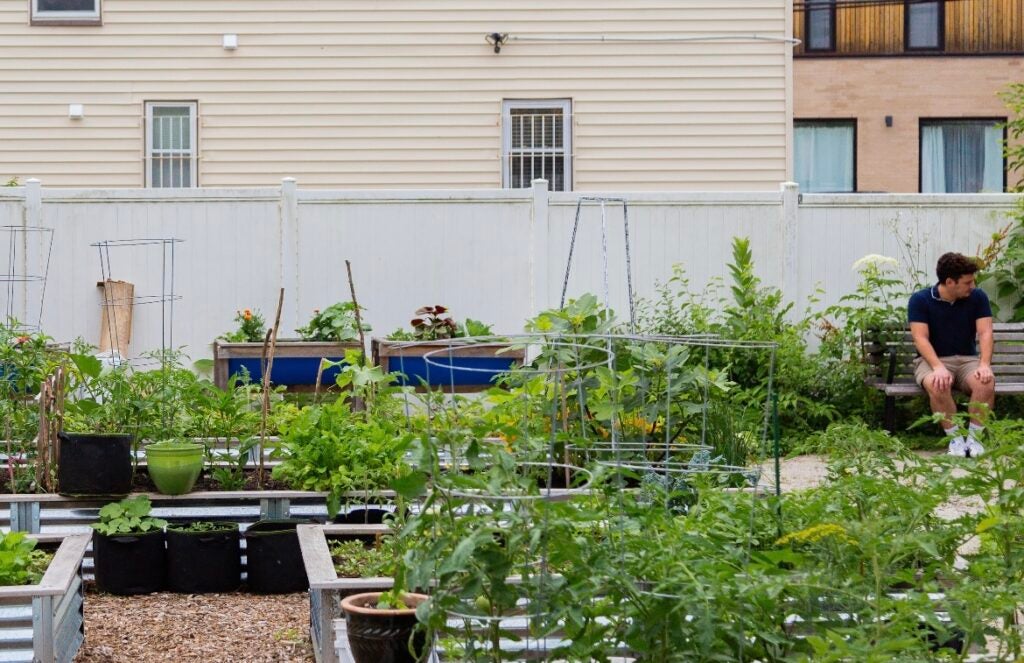
My internship project involves partnering with 5 project sites to tell the story of the transformation of space from community will to actualization. I started working with COGdesign on their storytelling project this spring semester as an assignment for EH 291: Community Practice in Environmental Health. To capture these narratives, I am conducting interviews to write stories, create photo essays, and assess individual and community health impacts through qualitative analysis. The photo essays are being co-created with Cristian Umana, a Harvard Graduate School of Design alumnus.
— Ben Weitz, MS Candidate, Environmental Health with a concentration in Environmental Justice
